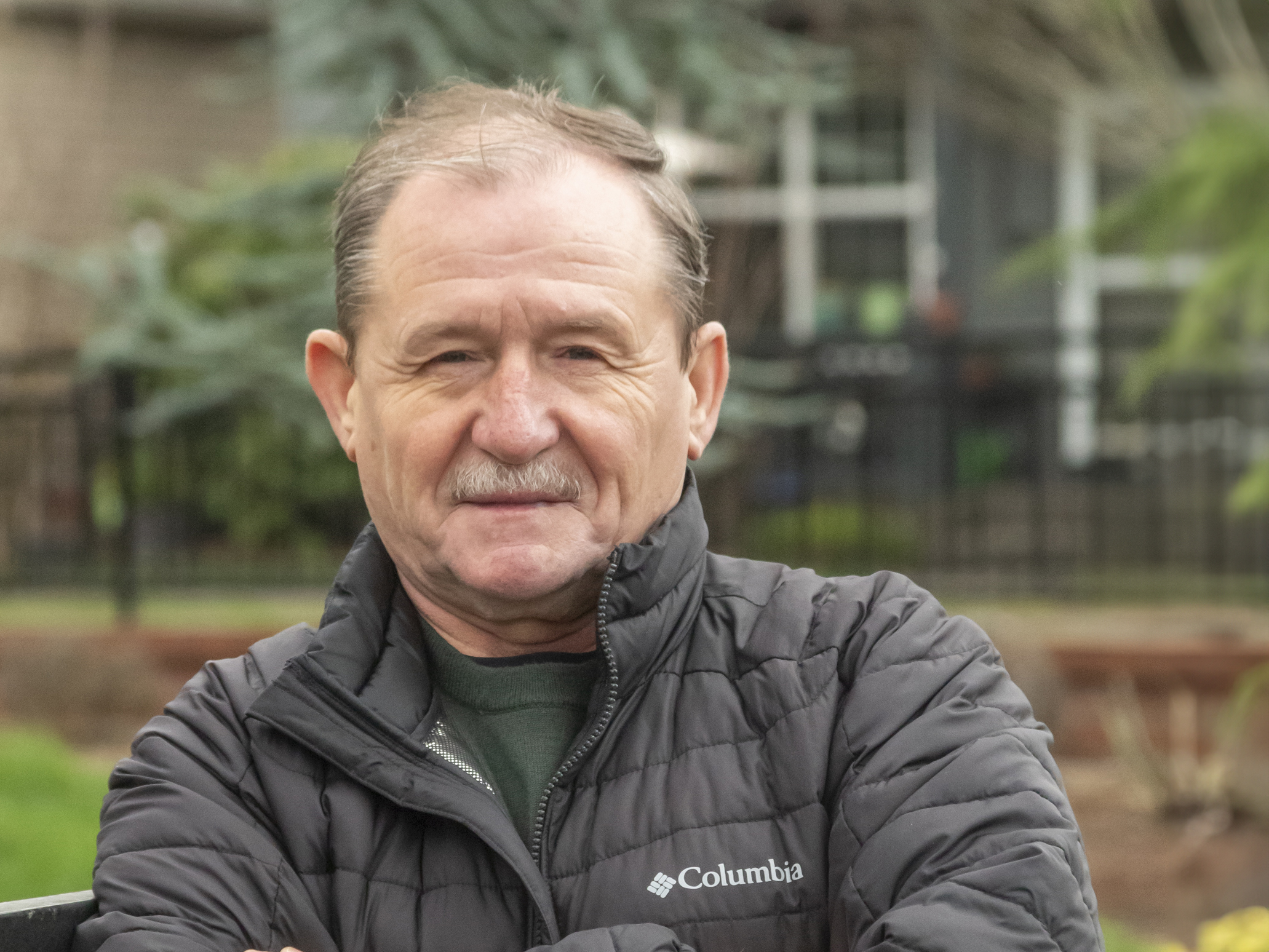“My family and I thought this would be over soon,” Volodymyr Shyshkin says. When Russia invaded Ukraine in February 2022, Shyshkin thought that the war would end within days. “Nobody thought it would last for this long.”
Shyshkin was born in November 1957 in Bayanaul, Kazakhstan, part of the former Soviet Union at the time. His mother was Ukrainian and his father was Russian. They soon separated, and at the age of three, Shyshkin and his mother moved to a small town next to Kherson, Ukraine, near Crimea. After his mother moved to Azerbaijan, formerly part of the USSR, to work, he was left in his grandparents’ care in Kherson.
Growing up in the Soviet Union in the 1960s, Shyshkin remembers being very happy and, despite the poverty, he felt very fortunate to live there.
“For kids living in the Soviet Union, we really felt that we were special. Propaganda made us feel that this was the best place to be because other countries lived much worse lives,” Shyshkin remembers. “Because it was a closed country, there was no way to know how other people lived. So we felt that we were living our best life.”
From 1979 to 1983, Shyshkin studied to become a home economics teacher. In 1983, after graduating from university, he was sent to teach in Crimea, where he met his wife of 40 years, who was also teaching there. They have a daughter and a son. After his grandparents died in 1989, the young family moved to Kherson and lived in his grandparents’ house.
When Gorbachev came to power in 1985, Shyshkin was hopeful that he would repair the economy. But, with the collapse of the Soviet Union in 1991, life became difficult. The first six years of independence were hard but with every year, conditions improved.
In 2014, Russia annexed Crimea when the Russian military secretly invaded and forced citizens to vote in favor of their annexation.
“I always feared that Russia would invade us,” Shyshkin says. “Russia is still an empire. Inside of Russia, there are a lot of nations that were occupied and conquered. They still are under Russian control and the empire has to get bigger and it has to take more land. That’s how empires work. Otherwise it will collapse. Putin sees himself as an emperor and lives inside his own world. He will conquer and conquer and won’t stop.”
At 4:30 a.m. on Feb. 24, 2022, Shyshkin woke up to sounds that he assumed to be thunder. He went back to sleep until a phone call from his brother-in-law in Kharkiv awakened him. Russia had begun to bomb, his brother-in-law told him. The next morning, Shyshkin went to the boarding school where he worked.
“The first thing I did was go to my school. Most of the kids didn’t have parents and lived there or if they had parents, for some reason they couldn’t be with them,” Shyshkin explains. “I began to call parents to take their kids or other schools to take our kids away from the war. We were working on it all day until we heard the sound of a bomb in the village next door. We heard the sound and all the doors and windows blasted open.”
Soldiers came, wearing balaclavas and carrying guns, searching people’s homes and looking for enemies. The soldiers quickly overwhelmed a handful of self-organized resistance groups, and moved into the schools and hotels.
“In the beginning, I thought it was a foolish mistake. That it could not last forever and international allies would make it stop,” he thought. “In two or three days, it would be over. Even after months, I thought it would be over soon.”
Russian propaganda claimed that they were invading in order to uncover and fight Nazis living in Ukraine. The first time the soldiers visited Shyshkin’s home, they treated him politely, but still searched his whole home and questioned him. The second time they came, they were no longer polite, routing through his home and treating him roughly. The third time they came, they took Shyshkin’s phone and placed a picture of Stepan Bandera, a Ukrainian far-right leader who collaborated with Nazis, on it.
“They told me to be very careful or I would be next,” he says. “After this time, we realized that we needed to leave. I used to work for the government and that’s not a good position to be in when people are looking to get information from you.”
In the summer of 2022, Shyshkin drove to Crimea with his wife and mother-in-law. From there they went to Krasnodar in Southern Russia ,where his wife’s family lived. A few days later, they flew to Portland, Oregon, where his children were already living.
Shyshkin currently resides in Portland and is waiting for his green card. He is learning English but does not yet have a job. He is in frequent contact with friends in his village, who report that the village is largely destroyed and surrounded by fencing so there is little freedom of movement.
“I hope that this will be over soon with the victory of Ukraine,” Shyshkin says. “ I really want to go back home, even though I know it won’t be the same. ”
—
This interview was conducted through the use of an interpreter, Sasha Kotova. We thank her for her help with this project.

